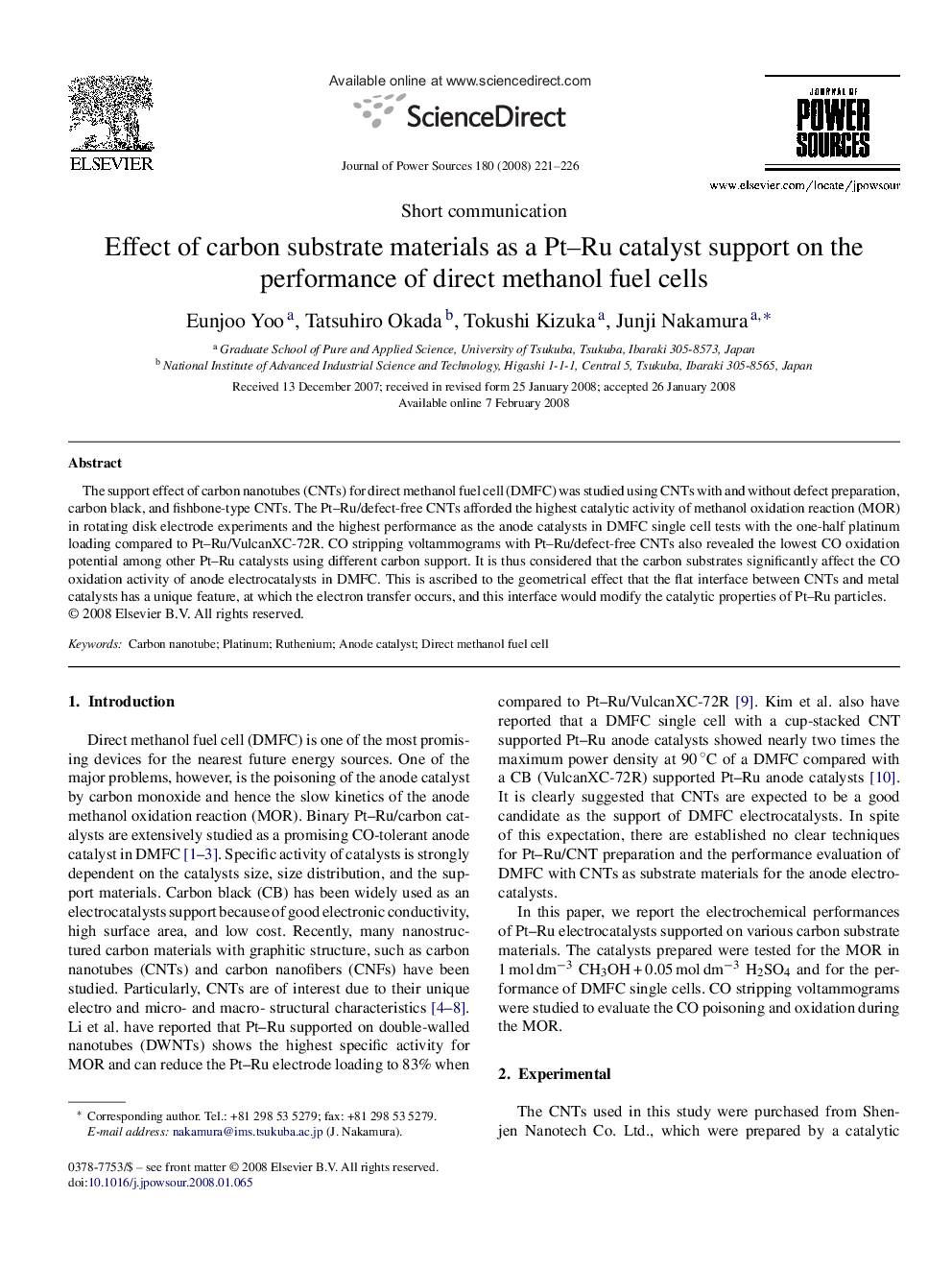| Article ID | Journal | Published Year | Pages | File Type |
|---|---|---|---|---|
| 1290567 | Journal of Power Sources | 2008 | 6 Pages |
The support effect of carbon nanotubes (CNTs) for direct methanol fuel cell (DMFC) was studied using CNTs with and without defect preparation, carbon black, and fishbone-type CNTs. The Pt–Ru/defect-free CNTs afforded the highest catalytic activity of methanol oxidation reaction (MOR) in rotating disk electrode experiments and the highest performance as the anode catalysts in DMFC single cell tests with the one-half platinum loading compared to Pt–Ru/VulcanXC-72R. CO stripping voltammograms with Pt–Ru/defect-free CNTs also revealed the lowest CO oxidation potential among other Pt–Ru catalysts using different carbon support. It is thus considered that the carbon substrates significantly affect the CO oxidation activity of anode electrocatalysts in DMFC. This is ascribed to the geometrical effect that the flat interface between CNTs and metal catalysts has a unique feature, at which the electron transfer occurs, and this interface would modify the catalytic properties of Pt–Ru particles.
